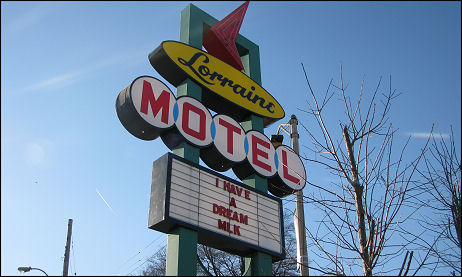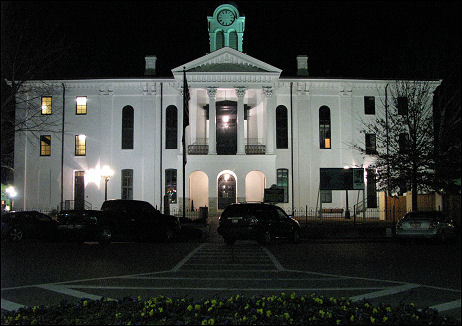Jett’s journalism instructor at the S.I. Newhouse School of Communications at Syracuse University is hammering home one of the basics. When writing criticism, never use the words “is” or “not.” HE commenters, take note.
Mark Lisanti (formerly of Defamer) has written a piece for vanityfair.com called “Five Oscar-Night Surprises We’d Like to See.”

HE reader LexG just said something that struck a truth chord for me, to wit: “Female directors by and large aren’t very visual.” I would put it this way instead: I don’t recall detecting (and I’ll fully admit that I haven’t been vigilant enough in watching the work of unsung women directors) a raging obsessive visionary gene in women directors and, now that you mention it, women dps.
There’s a certain tone of compassionate frankness — a kind of less-is-more, fair-minded, eye-level sanity or rational tidiness in the visual signatures of certain female-directed and female-shot films. One major exception: Kathryn Bigelow‘s direction of The Hurt Locker (boosted by Barry Ackroyd‘s cinematography).
I know I’m going to get screamed at for this, but I’m asking myself where are the super-cranked visual hardcase female directors and dps? Where is the female Gordon Willis, Vittorio Storaro, Emanuel Lubezski, Chris Doyle, Conrad Hall? Where is the female-directed film with, to name bu tone example, one of those audacious Scorsese shots, like that famous one in Goodfellas when Ray Liotta and Lorraine Bracco walk through the rear entrance of the Copa and through all the kitchens and utility rooms and back hallways?
There are a lot of female “versions,” I believe, of ordered and painterly dps like James Wong Howe , Freddie Francis, John Alcott or Roger Deakins even, but it’s hard to think of women who’ve shown the kind of striking pizazz and/or stunning pictorial compositions that one associates with Gregg Toland, Michael Chapman or Nestor Almendros.
I know I’m being a bit simplistic and ignorant. I’m mainly asking for names that I and others need to hear about. There are obviously many, many excellent female directors and dps out there — don’t get me wrong. I just can’t remember any who’ve shown an “eye” or a shooting style that I would call fevered or amped-up and rule-breaking crazy.

I don’t know the roster of voice-over guys like I used to, but whoever is voicing this has that purring, steel-chipped Don LaFontaine thing going….”in a world.”

View of Oxford Square from second-floor balcony of John Currence‘s City Grocery, a first-rate gourmet restaurant that hosted a luncheon today for visiting journos & filmmakers in concert with the Oxford Film Festival — Friday, 2.6.09, 1:15 pm
Two fascinating articles have emerged about how Stephen Daldry‘s The Reader might (i.e., seriously could) win the Best Picture Oscar with a faint corresponding idea that Slumdog Millionaire has peaked. I don’t believe it for a second.
The most affecting is a thoughtful, wonderfully written piece by Roger Ebert. It is so full of primal truth and righteous reflection, I feel, that reading is more stirring and intriguing than watching The Reader itself.
The other is a total stretcharoonie by Entertainment Weekly‘s Nicole Sperling and Christine Spines. It basically suggests/implies that (a) Harvey Weinstein is on a roll, (b) his luck is back, (c) voting for The Reader is a chance to offer a goodbye hug for the the late, much beloved Reader producers Anthony Minghella and Sydney Pollack, and (d) the Academy’s old Jews are voting en masse for it.
“In truth, The Reader remains a long shot in the Best Picture race,” Sperling and Spiones admit, “but if there’s one thing Hollywood has learned over the past two decades, it’s never to underestimate Harvey Weinstein. Love him or hate him (or both), he made the Oscar races exciting. Now Weinstein has another chance to relive his glory days, to slap the backs, to point the fingers, to be the P.T. Barnum of the Academy circus one more time. ‘
”It’s the sportsman in me,’ he says. ‘I like the fight.’ We’ve noticed.”

N.Y. Times reporters Brooks Barnes and Michael Cieply reported a few minutes ago that Universal Pictures “has issued a statement acknowledging that DreamWorks [is] shopping elsewhere” for a distribution deal. That means Disney. “Universal Pictures has ended discussions with DreamWorks for a distribution agreement,” it said. “It is clear that DreamWorks’ needs and Universal’s business interests are no longer in alignment. We wish them luck in their pursuit of funding and distribution of their future endeavors.”
Honest, really…who cares? What does it matter? How much better can DreamWorks partner Steven Spielberg, whom I sometimes think of as the bearded and beaming Noah Cross of modern Hollywood, live or eat or dress? What has this deal have to do with the price of rice and the basic nutrients that we all need from good movies on a regular basis? I’ll tell you what it has to do with them. Not much.
What effect will this have, if any, upon Spielberg’s finally stepping up and directing his Lincoln movie, if in fact he intends to direct it (which many people doubt). None, I’m guessing. Spielberg has blown the magic moment on the Lincoln project anyway. It should have been filmed last year and come out just after Barack Obama‘s election, or sometime in December and into January. The timing would have been perfect.
And yes, now that I’ve thought it over, Daniel Day Lewis should play Mr. Lincoln. It would break Liam Neeson‘s heart to lose the role, but when a friend suggested Lewis the other day, I knew it was the right call.
“Is It Time To Kill The Chick Flick?,” a 2.4 Times Online article by Kevin Maher, says several justified things about this inane genre, including a boilerplate statement that “the modern Hollywood women’s picture or so-called chick flick has become home to the worst kind of regressive, pre-feminist stereotype and misogynistic cliche.”
The quote that got me, however, is from marketing consultant and Women & Hollywood founder Melissa Silverstein, to wit: “Fewer than 10 per cent of Hollywood films are written by women, and fewer than 6 per cent directed by women. So really what you are seeing is a white male version of women. And that is just unacceptable.”
The obvious question would be (and I haven’t done any research at all) “how many of the male screenwriters of chick flicks are straight?” And if, for the sake or hypothesis, a statistical majority of these screenwriters were shown to be gay, would that that really be an example of a bunch of boys-club screenwriters unfairly muscling female screenwriters out of a job? Put another way, if you were producing a chick flick, wouldn’t you want your pick of the best gay screenwriters around, at the very least for sass and seasoning?
Okay, now I’m not not leaving Oxford. The festival guys put me into another hotel — a nice plastic Holiday Inn — that has flawless wifi. All’s well again. I missed, however, this morning’s critics & media panel, which was moderated by James Rocchi somewhere on the Ole Miss campus. I was scheduled to take part, but I was so angry at the wifi troubles that I blew it off. I stayed up really late trying to fix things, couldn’t sleep, woke up at 4:30 am, cranky and dog tired…the hell with it.

There’s been a question about the two Clive Owen thrillers that are coming out five weeks apart — Tom Tykwer‘s The International (Sony, 2.13) and Tony Gilroy‘s Duplicity (Universal, 3.20). The question, obviously, is which looks like something you need to see in a theatre and which one looks like Netflix? Todd McCarthy‘s Variety review of The International, which is in print today, seems to provide part of the answer. The International is the Netflix choice.
Which doesn’t mean that Duplicity won’t be either. That said, it doesn’t seem likely that director Tony Gilroy (Michael Clayton) will flub it. I’ll be on the floor if he does. If he really screws the pooch, I mean. I don’t think it’s in him.
If Olympic gold-medal swimming champ Michael Phelps had been snapped sipping a glass of Jack Daniels rocks, would he have lost a major sponsor and been suspended from competition for three months by USA Swimming? Of course not. And yet this is what happened when a photo of him smoking dope was published by a British tabloid on 2.1.
I’m sorry to be behind-the-curve but isn’t alcohol just as poisonous and bad for the system and deblilitating to the soul as dope, if not more so? It’s not as if Phelps was photographed mainlining heroin or smoking crack. The guy was just smoking a little weed — big deal. I heard a news guy on CNN say this morning, “He broke the law so he has to suffer the consequences.” The laws against pot smoking are ridiculous — they’re in force because of a taxation and political issue, pure and simple. And because of a cowardice issue among politicians, lawyers and civil servants
I don’t turn on at all and I limit my imbibing to wine in the evenings, but it’s the height of hypocrisy for everyone in the athletic world to gulp drinks at social occasions like there’s no tomorrow and yet suffer cardiac arrest when an athlete takes a single bong hit at a party. Is there a hole somewhere I can get sick in?
Yesterday I rented a fairly inexpensive car from National/Alamo around 1:45 pm after landing at Memphis Airport, and soon after began my quickie tour of the four tourist attractions. I loathed Graceland, felt awed and saddened by the Lorraine Motel, didn’t much care for the Disneyland/Universal City Walk vibe of Beale Street, and loved the little shrine that is Sun Records, the small-scale, modest-vibe recording studio that was begun by the great Sam Phillips in 1950, and is now a down-homey, old-time funky studio and and souvenir shop.

The only image I was able to find in the entire area of Graceland (i.e., on both sides of Elvis Presley Blvd.) that didn’t seem garish or tacky.
Graceland, the former home of Elvis Presley and an ongoing shrine to the money that his music and movies continue to earn, is just southwest of Memphis airport and located on an ugly straightaway called Elvis Presley Blvd., littered with tacky blue-collar chain stores and fast-food franchises and unsightly warehouses and car washes. The area is flat and character-less with amber-brown grass and very few trees, except for a relatively small forested area near Graceland.
The area around Graceland was probably wide-open country (or close to it) when Presley first bought the place in early 1957 for $100 grand — now the Graceland commercial milieu is indistinguishable from the crap and clutter along New Jersey’s infamous Route 22. One look and you want to escape. It’s the pits.
And economically depressed. I bought a burger at a little joint called Checkers, which is just north of Graceland, and two panhandlers hit me up for money while I was waiting.
The tourist stores pandering to the Presley fans are located across the street from the walled-in main property, which consists of a long upsloping lawn, a modest-sized home with a kind of southern-style neo-colonial design with a brick facade, and a couple of buildings built alongside, including what looks like a barn or a horse stable. It’s said to have 23 rooms but it didn’t look all that big to me. Presley is buried in the back yard (we’ve all seen the photos), but I took one look at this parched, depressing, over-hyped sucker attraction and decided not to take the tour.
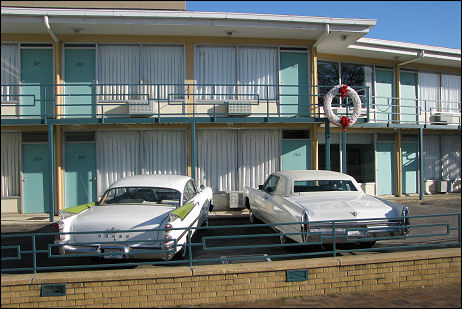
Lorraine motel, site of the April 1968 murder of Martin Luther King, located on a somewhat neglected, borderline seedy portion of downtownMemphis — Thursday, 2.5.09, 4:05 pm
The snaps I took yesterday of the Lorraine Motel, site of the April 4, 1968 murder of Dr. Martin Luther King, speak for themselves. The strongest impression I got was that it’s quiet — dead quiet. The Lorraine stopped being a working motel in ’82 and was soon after bought by the Martin Luther King Jr. Memorial Foundation and eventually became part of a small network of buildings called the National Civil Rights Museum.
It’s a queer sensation to suddenly be eyeballing with great concentration a place as famous/infamous as this, and to just…I don’t know, just stroll around and take it all in. I was assessing the distance between the motel’s upper balcony (where King stood just before being shot) and the rear window of a former down-at-the-heels rooming-house from which James Earl Ray fired . Over and over I’ve watched black-and-white photos and newsreel film film (and lately, since the 40th anniversary last year, color video) of this sad place, and it’s just weird to see it live.
You can take Beale Street, the historic birthplace of the blues, and stuff it. It’s strictly a tourist trap with one Disneyworld blues bar, tourist merchandise shop and musician T-shirt or instrument shop after another. Beale Street obviously has a storied reputation; it just as obviously has sold that atmosphere down the river for tourist bucks.
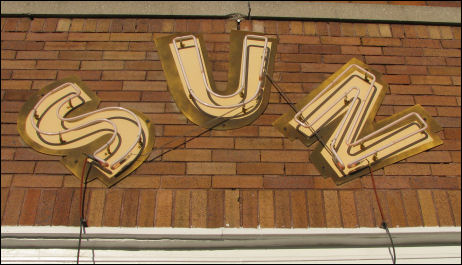
I loved visiting the fabled Sun Studios because it hasn’t been expanded or glitzed up. It looks and feels a lot like what I imagine it used to be back in the ’50s. I bought an “Elvis at Sun” CD and listened to it twice during the 90-minute drive south to Oxford. “Y’heard the news, thayuhs good rockin’ tonight.”
I tried to attend the Oxford Film Festival’s opening-night attraction, Sunshine Cleaning (Overture, 3.13), but this middle-aged goon hired by the distributor stopped me from entering the theatre because I had my camera slung around my neck. If you don’t want cameras in a theatre you set up a table in the lobby asking people to surrender their devices, and then you put each device into a plastic baggie and give the owner a receipt. Not a problem; I’ve done this dozens of times. But the dickhead at the theatre last night just said “no camera” and “maybe you can get somebody outside to hold it for you.” So I walked. I didn’t care. It was just Sunshine Cleaning.
I missed Sunshine Cleaning, come to think, when it played at Sundance ’08 so last night’s episode was in keeping with tradition. I’ll presumably see it before next month’s opening.
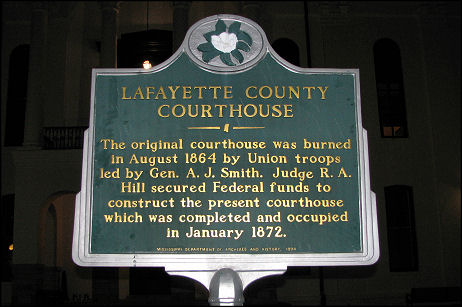


“Not happening…way too laid back…zero narrative urgency,” I was muttering from the get-go. Basically the sixth episode of White Lotus Thai SERIOUSLY disappoints. Puttering around, way too slow. Things inch along but it’s all “woozy guilty lying aftermath to the big party night” stuff. Glacial pace…waiting, waiting. I was told...
I finally saw Walter Salles' I'm Still Here two days ago in Ojai. It's obviously an absorbing, very well-crafted, fact-based poltical drama, and yes, Fernanda Torres carries the whole thing on her shoulders. Superb actress. Fully deserving of her Best Actress nomination. But as good as it basically is...
After three-plus-years of delay and fiddling around, Bernard McMahon's Becoming Led Zeppelin, an obsequious 2021 doc about the early glory days of arguably the greatest metal-rock band of all time, is opening in IMAX today in roughly 200 theaters. Sony Pictures Classics is distributing. All I can say is, it...
To my great surprise and delight, Christy Hall's Daddio, which I was remiss in not seeing during last year's Telluride Film Festival, is a truly first-rate two-hander -- a pure-dialogue, character-revealing, heart-to-heart talkfest that knows what it's doing and ends sublimely. Yes, it all happens inside a Yellow Cab on...
7:45 pm: Okay, the initial light-hearted section (repartee, wedding, hospital, afterlife Joey Pants, healthy diet) was enjoyable, but Jesus, when and how did Martin Lawrence become Oliver Hardy? He’s funny in that bug-eyed, space-cadet way… 7:55 pm: And now it’s all cartel bad guys, ice-cold vibes, hard bullets, bad business,...

The Kamala surge is, I believe, mainly about two things — (a) people feeling lit up or joyful about being...
Unless Part Two of Kevin Costner's Horizon (Warner Bros., 8.16) somehow improves upon the sluggish initial installment and delivers something...
For me, A Dangerous Method (2011) is David Cronenberg's tastiest and wickedest film -- intense, sexually upfront and occasionally arousing...




